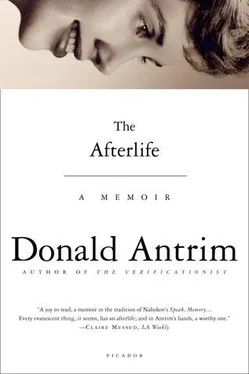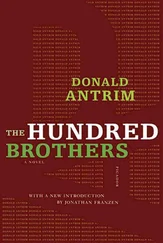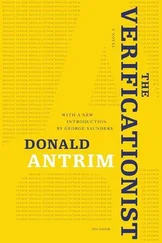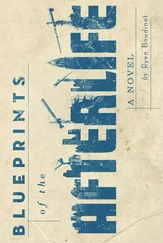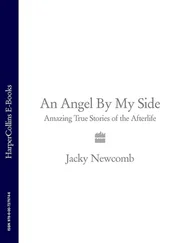“What are you asking me? I just got out of the hospital! I’m sick, Don! I’m sick! Can’t you let me have some peace? ”
“Don! Stop!” This from my sister.
I leaned back in my seat. I’d made our mother cry. We rode home to the sounds of her sobbing and coughing. Later, at the house, she got in her bed and announced that she wanted Terry to keep her company for the night. I had to go to the hotel.
The next day and the day after that, I manned the hotel bar phone. No one I spoke with had heard of another will. I opened the yellow pages and read the names of Asheville attorneys. I was determined to catch my mother in what I was certain was a deliberate deceit. How could she? How dare she? I told myself that I wanted to get to the bottom of the matter. I was curious. That was all. Had there been another will? Where was it? Had my grandfather mentioned another lawyer?
Hurricane Floyd had by this time changed course and spun away from the Florida coast. The danger to my father and his wife had passed. At least there was that. But what about the toxic spill beneath my mother’s house? What about the Environmental Protection Agency? What about radiation therapy? Would my mother accept radiation? Would she consider a nursing home? Which nursing home?
In the afternoons, I cleared my papers from the bar and walked down the hill to the house. Had you been a resident of one of the homes in that part of town — one of the stone bungalows whose porches, in my memory of them, were painted durable green or brown shades that echoed the colors of the forested mountains in the near distance; or one of the bigger houses whose more spacious porches were decorated with comfortable chairs positioned to give a view of the lawn — and had you been sitting out front or standing at a window, you might have seen a man stalking past, wearing lace-up moccasins without socks, khaki shorts held up by a narrow belt, and a white dress shirt, tucked in. He probably would have had his hands shoved into his pockets, and his head might have been lowered, eyes glaring at the road ahead. Would you have imagined that this anxious man was plotting to bring down shame and maybe even the law on his own mother, who, at that moment, was lying on her back in huge discomfort, possibly imagining dying, or imagining smoking and drinking, or trying, with help from her pills, to lose consciousness and sleep for an hour or two, while in the kitchen her daughter made a few last phone calls of her own, penciled check marks beside things-to-do notes on a yellow pad, and boiled water for tea?
“You look like your father,” my mother said to me one afternoon when I came in the house. She was correct. The shorts-and-shirt outfit I was wearing was pretty much a copy of his summer uniform.
It had been a long time since my father had left my mother for good, and for years I’d listened to her criticisms of him. Yet I recall that once, when she was just beginning her new life in North Carolina (before death began waiting, as it were, around the corner), I asked her to tell me about the time when they’d first separated, and she surprised me. I know that her discovery of his love affair, early in their marriage, must certainly have wrecked some part of her confidence in herself as a sexually compelling woman, a confidence that she never, I think, regained, and that her drinking, by incrementally destroying her body and undermining her feelings of well-being and clarity of mind, helped to obliterate further.
And yet in spite of what I know, or think I know, today, it is also true that my memories of my parents’ early bad times are obscure to me. I see, for instance, an edge of olive-green carpet on a wood floor, and blue-spined paperback books, old Pelican editions, lining a low shelf. I hear a Miles Davis record, Porgy and Bess , playing in the background. The place is Gainesville, and I am six, and, looking up, I see the back door of our house. The kitchen is empty; curtains fall across black windowpanes. It is night, the shouting has stopped, and the door is open: someone has left.
Thirty-five years later, I asked my mother to fill in a few gaps. In calling forth her memories of her life with him, or of her life alone with two small children, I risked her anger at me — at me —as if I were my father, and she were delivering the last word on our marriage.
Instead, she told me about the music and art he’d introduced her to, and about the poetry they’d read, and about the wild parties they’d thrown for their friends at the University of Florida, Butler and Charlie and Conrad and Maud and others whose faces still appear from time to time in my thoughts. As my mother spoke about her young marriage, the muscles around her mouth loosened, and her eyes grew soft. Her gaze, which rested directly on me, seemed to become clear — her memories felt good to her — and, exhaling smoke from her cigarette, she smiled.
Three years later, after she’d told me that I looked like my father, I stood in her Black Mountain living room, her sick bay, and, peering down at my feet and bare legs, at my shirt coming untucked from my shorts, said, “I guess you’re right, Mom. I do look like Dad.”
“That’s all right, Don,” I remember her saying. And I answered, “I hope so, because there’s not a lot I can do about it.”
But what about the will? Looking back it can seem to me that the existence or nonexistence of my grandfather’s will is important less as a substantive question in its own right, more as a quandary, unanswerable, mysterious. In remaining mysterious, the will became — and becomes — a source of power, the power, in this case, to enact betrayal and deprivation. My mother had betrayed the memory of her father. Was she now, in her abandonment of her children, giving us permission to betray her ? Was she inviting us, one last time, to fight and be punished? Who would disappoint whom, and who could suffer with the most grace? And who, in the war between a mother and her children, a war of shame, could ever set things right?
A few days before my sister and I left Black Mountain, I sat on a stool at the empty hotel bar, and, as I’d done before, opened the yellow pages to Attorneys. This time I saw, as if it had been listed only that afternoon, a name that struck me. Maybe my grandfather had mentioned it once. I picked up the phone and dialed the number, and a receptionist answered and connected me to the lawyer, who, when asked if he’d known my grandfather, Don Self, acknowledged that he had. Had they worked together? Yes, he told me, they’d worked together. In order to preserve client confidentiality he could not speak about the particulars of their business. However, in an approximate way, the lawyer ratified my suspicions: My grandfather had wanted a trust for his daughter and grandchildren to be provided through his will. But then he’d died.
What to do? It was not a matter that could be safely discussed with my mother. I remember watching her sit up in bed. First, she had to reach out with a hand and clear the plastic air hose from the mattress, so as not to crush it beneath her. Next, working from an inclined, sideways position, she lowered her legs off the bed — leverage — and, using her full strength, shoved herself upright. She hunched forward and supported herself with weak arms, her hands placed beside her knees on the edge of the bed’s high mattress, her feet, blue from her poor circulation, hanging down like a child’s. She was still coughing, of course. I remember that she would look around the room with a fogged, faintly wary expression on her face, as if she did not quite understand where she was, or whether the locals were friendly. Merlin, her black cat, whom she believed to be a direct reincarnation of the Arthurian necromancer, would sometimes be curled beside her, and she might speak to him in the cooing voice she used when conversing with cats, even those she didn’t know. I remember that the house smelled like ash, though my mother had stopped smoking. Everything — rugs, curtains, bedspreads, tasseled chair cushions, Merlin — remained smoke-permeated. It drove my sister crazy. I remember holding Terry in my arms when, one afternoon, standing outside in the scratchy, untended yard behind the house, she broke down because our mother had become argumentative over the nurses who’d come that day for interviews. Terry and I piled in the car and escaped west toward Asheville, then up the Blue Ridge Parkway in the direction of Mount Mitchell, which I’d climbed on my bicycle when I was in my twenties. Now, crossing from slope to slope, rounding the parkway’s elegantly graded bends in the road, I could occasionally see, looking from the car’s rolled-down windows, tiny squares and rectangles in silver and white and black and red — barn and farmhouse roofs dotting the valleys below. As we ascended, the air temperature dropped, and we passed through clouds that had settled in the mountaintop hollows. I leaned back in the passenger seat, watching for hawks in the sky, and my sister told me about her family’s boat trips on Puget Sound, about her children’s schools, and about her painting — still lifes and landscapes, mainly. Listening to her talk about her life, I was reminded of car rides across the mountains with my grandfather.
Читать дальше
